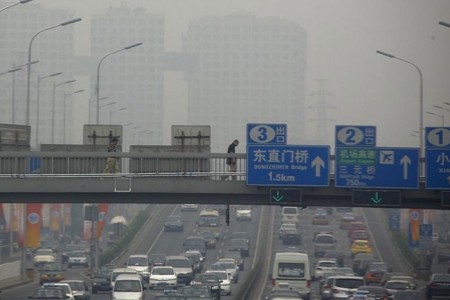By Damien Ma

China’s “airpocalypse” has reared its ugly head again this week in Beijing, cloaking the capital in what appeared to be a dystopian gray. But this isn’t science fiction; rather, it is a reality that has unfortunately become almost quotidian for urban Chinese citizens.
This is an urgent problem that requires a long-term focus. Although the Chinese government has certainly made addressing air pollution one of its top priorities, there is no quick fix or turnkey solution. But Beijing has lent political capital behind tackling this issue of wide public concern, and is in fact smartly leveraging air pollution as a justification to enable more dramatic transformations in China’s energy landscape.
That’s because coal, the predominant fossil fuel that powers the Chinese economy, is also the culprit behind a large portion of the pollutants and carbon emissions. If China does not meaningfully shift away from a coal-based economy, then the current problem will remain intractable and likely worsen. Fortunately, diversifying away from coal is precisely the centerpiece of China’s energy strategy in the foreseeable future, as I argued in a recent paper from the Paulson Institute. A significant diversification from coal is good news for virtually every other fuel, in particular natural gas and renewables. Look for healthy growth in both of those sectors.
But is the singular focus on limiting coal sufficient to address China’s monumental energy challenges and to meet its targets on carbon emissions? Not necessarily. The “supply-side” focus of China’s energy strategy will likely have to be balanced with more emphasis on “demand-side” incentives to manage rising energy consumption. That’s because as the Chinese economy shifts to more consumption-based growth, its energy profile will be more anchored to Chinese consumers, as they demand cars and houses. More attention will have to be paid to how to deal with growing drivers of energy consumption in the transport and residential sectors.
Damien Ma is a Fellow at the Paulson Institute.


